So much of American life can be improved by reducing food waste. ReFED can help.
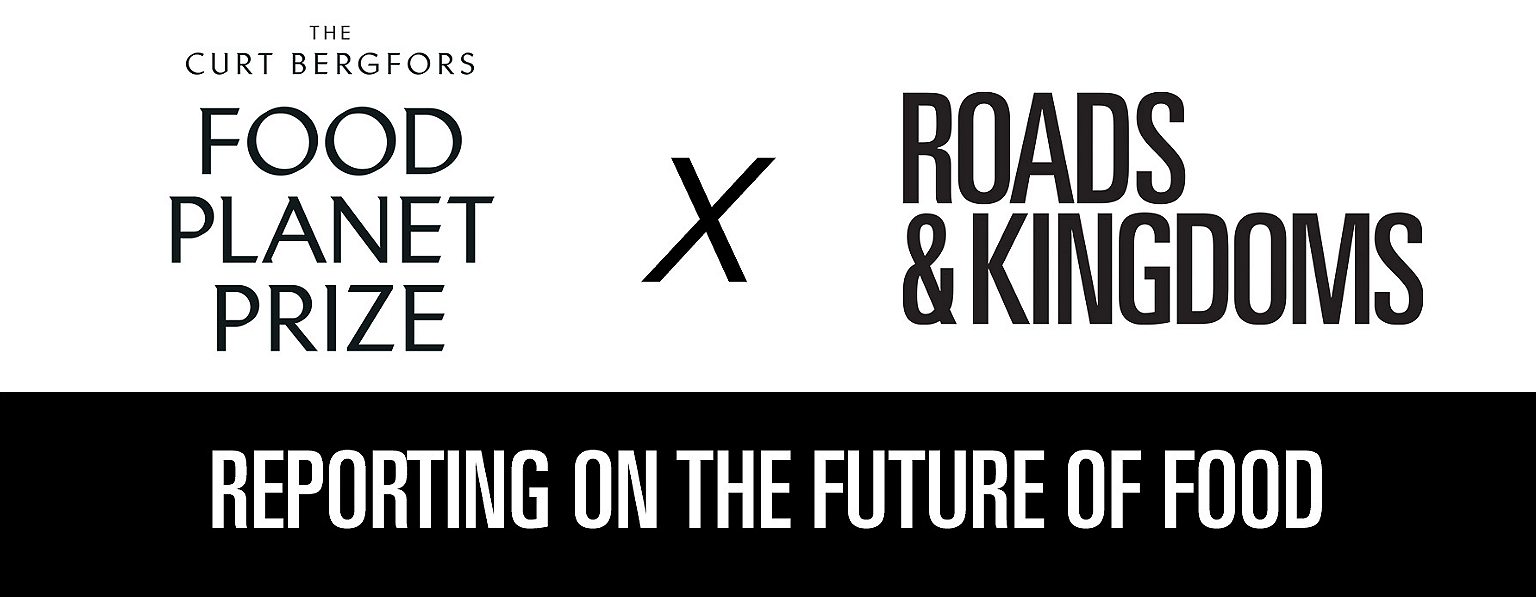
Top image: Dana Gunders, ReFED’s Executive Director, at a farmers market near her home in Truckee, California.
TRUCKEE, California—
Dana Gunders is groan-laughing, despite herself. For the last hour, the conversation in a Truckee, California, grocery store café lounge has focused on the impact of food waste on human beings and our environment, “food waste” appearing at first blush to be a mild, if approachable term for a few ingredients not making it into a dinner recipe at their peak. In fact, food waste refers to a massive systemic issue across every aspect of how we make, transport, buy, prepare, and dispose of food and its byproducts. Gunders, as executive director of ReFED, the leading nonprofit in this arena, is constantly thinking about the food we don’t eat: the produce that rots in fields unharvested or in transport to point of sale, the bulk purchases that expire in hotel and restaurant walk-ins, the ugly fruit at the farmer’s market that never gets chosen, the government-mandated portions in school lunches that may not be a fit for your 8-year-old’s appetite.
How to talk about food waste, it turns out, is a major part of resolving a crisis that denies access that millions of people could have to affordable healthy food, contributes to high quantities of greenhouse emissions, and increases the cost of food overall. And so if there is anything funny to be said about food waste, it’s that the term doesn’t convey the scope of the challenge. “It’s a terrible term,” Gunders says, her laugh extending into a sigh as she slides the base of her palm across her eyelids. “People understand it very quickly, though not always correctly.”
It could be said that the United States has consistently struggled to manage its food system effectively and consistently. In 2021, as one marker, more than ten percent of Americans (13.5 million households) weren’t sure whether they’d have food on a given day. And yet, the U.S. tosses out about 35% of its food supply, or about 80 million tons, a number that Gunders describes as “ridiculous.” She considers other terms: “We talk about ‘surplus food’ a lot because it’s not waste until you waste it, right? What we really want is for there to be less surplus in the first place, and then for it not to go to waste.”
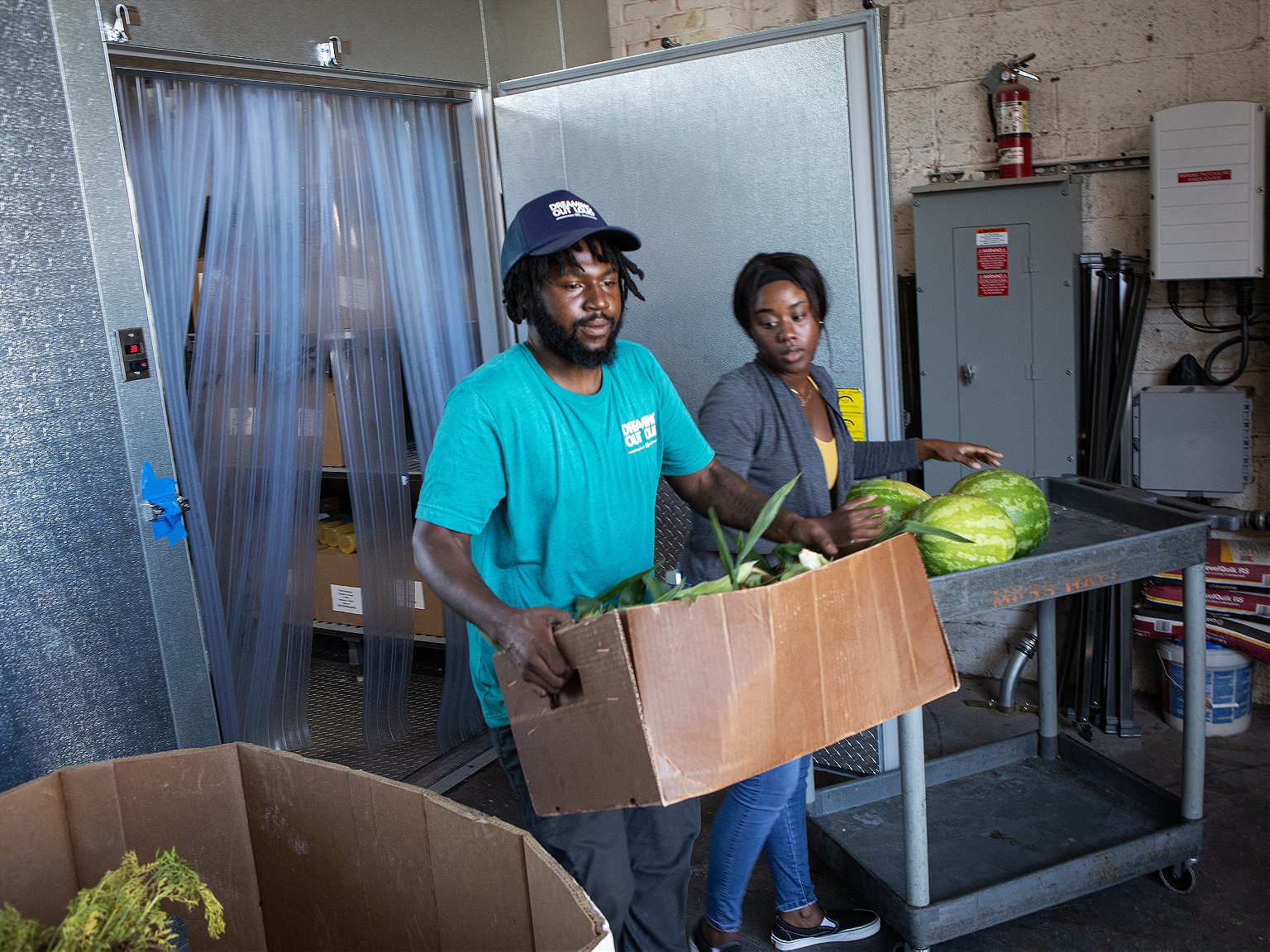
The good news about food waste is that at least by Gunders’ standards, nobody wakes up committed to throwing food away. In a society where bottom lines are treated as gospel, no business wants to buy food unnecessarily and have it not be consumed. Since its beginnings seven years ago, ReFED has been the sole national nonprofit dedicated to significantly reducing food waste, with aims to cut that 80 million tons in half by 2030. This won’t just save food, it could limit global warming and remake the food system into something far more inclusive and not inherently mired in systemic injustices.
To study food waste is to realize how it touches, and is touched by, every part of our lives.
ReFED first formed in 2015, but its history really started with a foundational report that came a year later: the 2016 Roadmap to Reduce U.S. Food Waste by 20 Percent. It was part analysis, part action plan and part acknowledgement of the severity of the issue. “It’s really about examining the food system to understand where waste is designed into it,” Gunders said. “And how do we find ways to design it out?”
It also introduced one of the core creative tensions facing the organization: how to produce data, great data even, but always with an eye on making sure that data translates into action. “Lord knows we don’t want to sit around and create reports that sit on shelves and nobody uses,” says Gunders. “Our ultimate goal is to have people do stuff with that information.”
First things first. “You can’t manage what you can’t measure”, as Gunders puts it, so the organization compiled data sets and built an open-source data and insights engine. A robust toolkit that’s been used by government agencies, retailers, farmers, and many other stakeholders, the engine allows users to discover what actual documented issues currently exist, to research existing solutions and providers working on those issues now, and to calculate what impact those efforts may have.
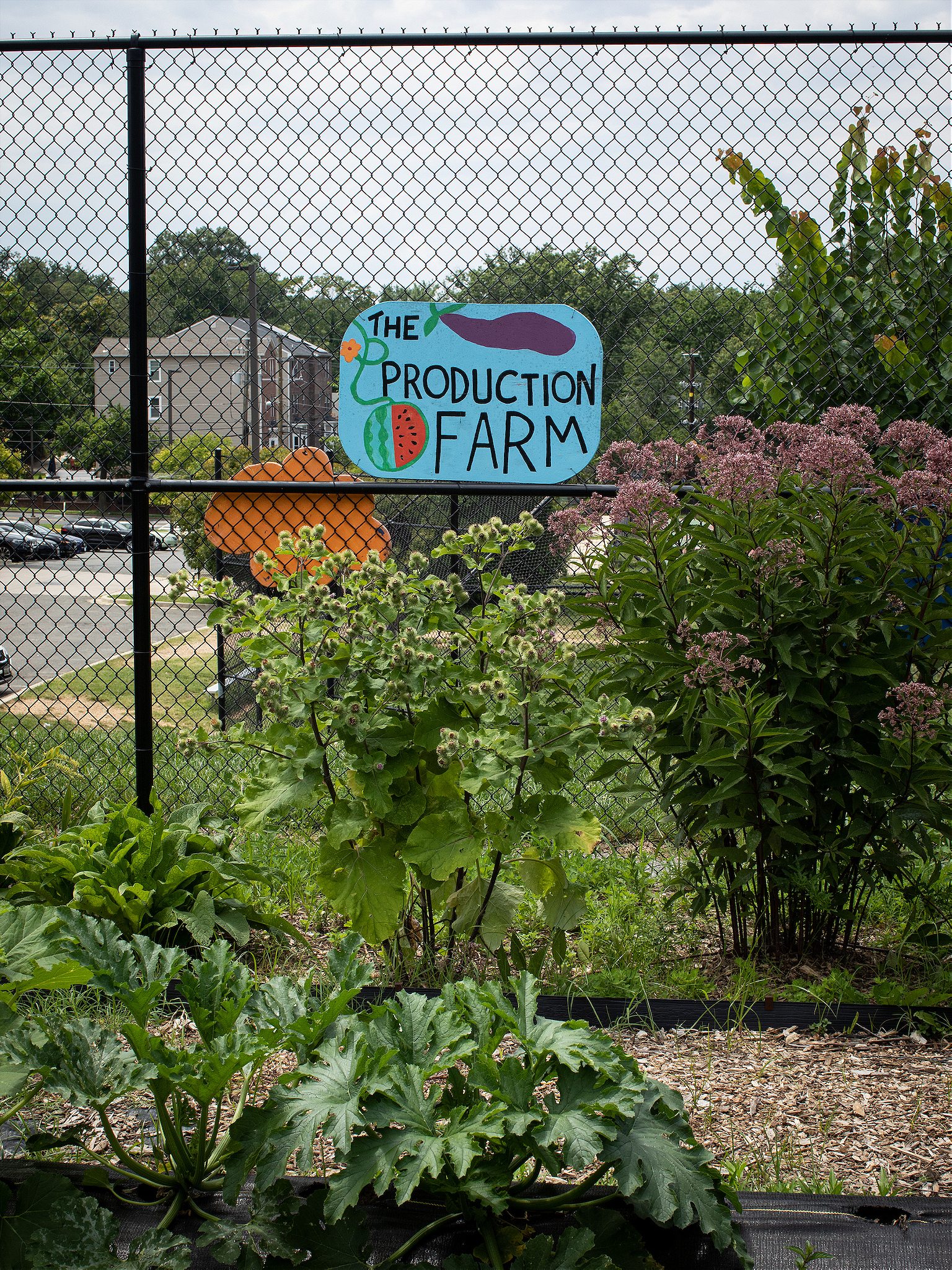
One key action it’s meant to spur is donation. Impact investors, notably Jesse Fink, the founder of Priceline, were at the heart of the organization’s founding. Current funders include huge corporations and foundations like General Mills, Hellmann’s, Deloitte, and the Walmart Foundation. That insights engine? Sponsored by the Kroger Co. Zero Hunger | Zero Waste Foundation. This June’s announcement that ReFED would help launch the $100M Circular Food Solutions Funding Platform was the culmination of years of efforts to build structures around how they channel money.
“Anyone who’s interested in this topic, anyone who’s a funder, can participate in education and deal flow,” says Gunders. “And anytime an organization is looking for money, we put that on a list and send it out to all of these groups and it helps kind of grease the wheels of the whole system.”
Emily Broad Leib, Founding Director of the Harvard Law School Food Law and Policy Clinic, says ReFED is a critical platform for everyone interested in attacking this problem. “ReFED is really at the center of building that ecosystem, of maintaining that network, and keeping all the other stakeholders engaged,” she says. “They’re the group that’s field-building, the hub for all the spokes in this issue.”
Leib helps maintain the policy finder for ReFED, in part because the ReFED site is the most visible space in the food waste community, a digital watering hole for powerful groups who want to help and groups on the ground who are already helping.
In the United States, tackling food waste can involve a very delicate political and economic dance.
So despite their relatively small size—just 20 employees—ReFED seems well positioned to effect change throughout the entire food system. Which would be nice, since, well, the system is so convoluted, so far from ideal. Take, for example, food waste and hunger. Right now, food banks, soup kitchens and churches rely heavily on food donations to feed those who are food insecure, a group that disproportionately comprises communities of color. So food waste… fights hunger?
“If I were going to design the food system from scratch,” says Gunders. “I would not design it so that the way we feed people who can’t feed themselves is to just over-buy and over-consume and then [donate the food] later in its life… what we really want is a food system that’s so efficient that we don’t have that surplus. And acknowledge that it is our social responsibility to have everyone in our country fed.”
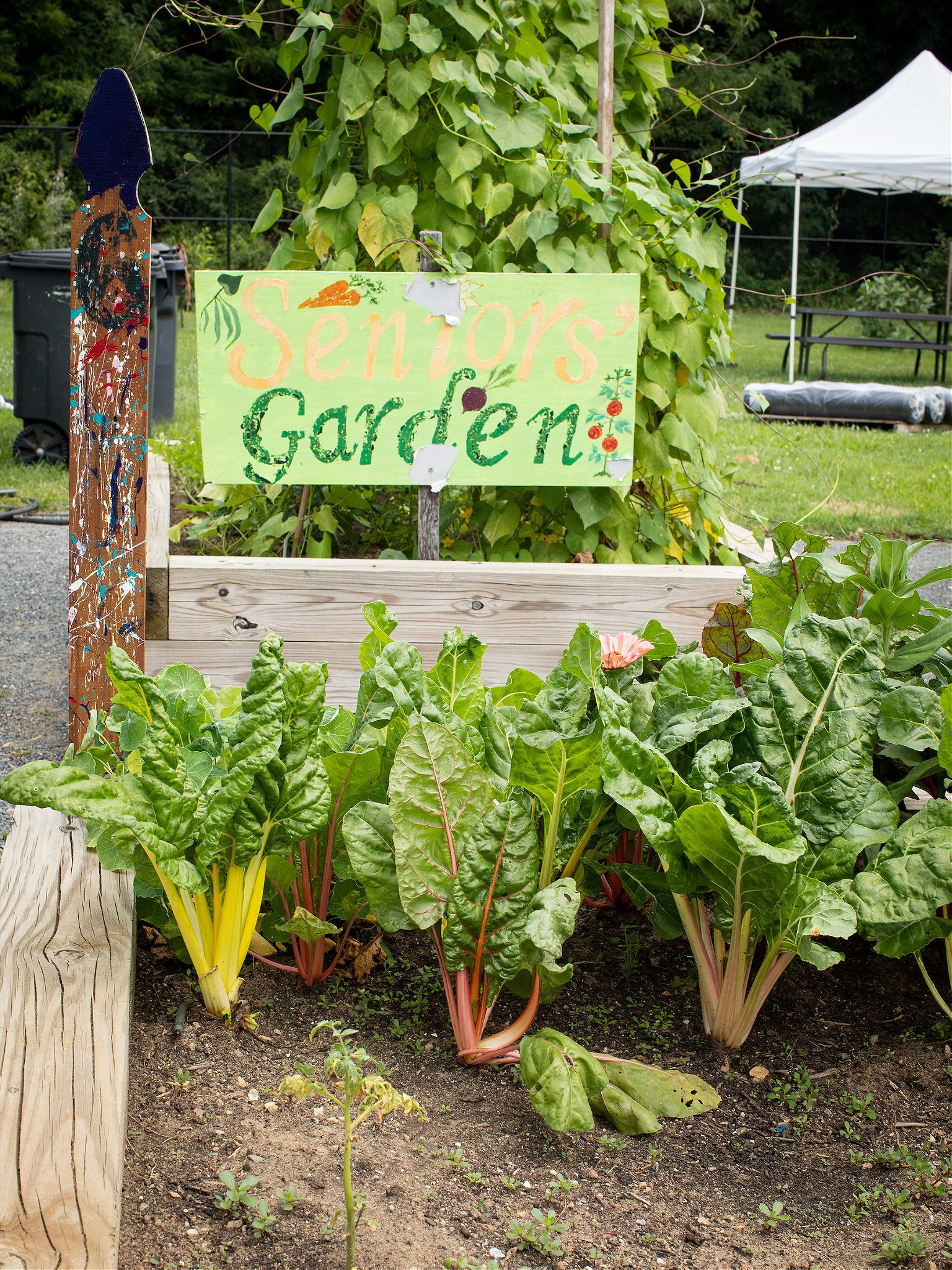
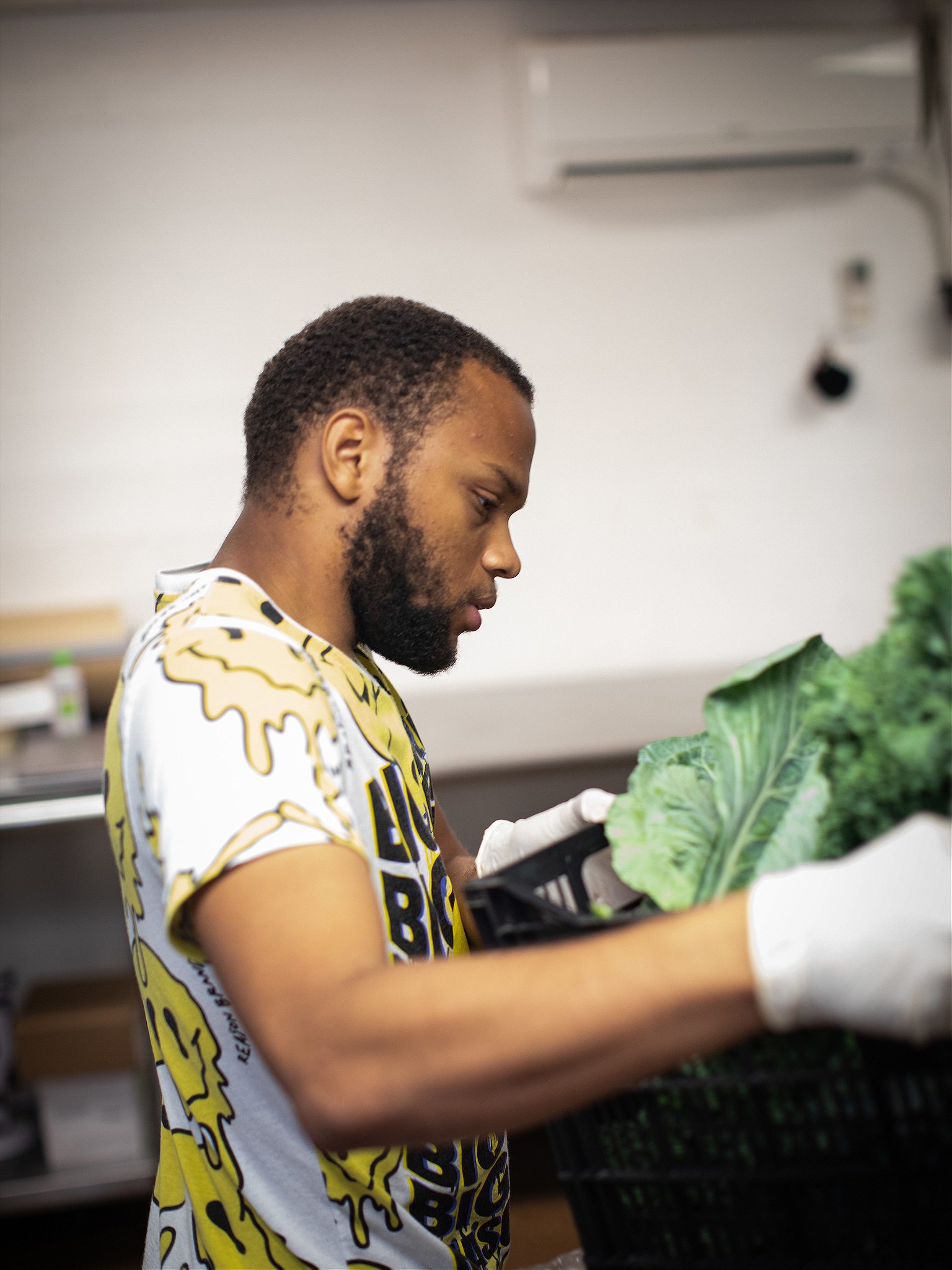
She describes meeting a leader in food surplus issues in the Netherlands who was perplexed even at the idea of donating large amounts of uneaten food. There simply aren’t enough hungry mouths to feed in a country that prioritizes feeding the poor. So instead, they can focus sharply on reducing surplus without worrying about downstream impacts on hunger.
But that is the Netherlands. In the United States, tackling food waste can involve a very delicate political and economic dance. Gunders recently testified in front of Congress and says that Michelle Obama’s 2012 school lunch guidelines came up, once again. The familiar talking point was that anyone who put more fresh vegetables in school lunches must not be against food waste, since children just throw the vegetables out. “It’s not okay to use waste as this argument against feeding people well,” says Gunders. “How about this: make the food taste better.”
For all the institutional and financial muscle of ReFED, though, one of their greatest assets is the understanding that big fixes in food waste sometimes start small. Yes, there are large-scale packaging solutions, and more private sector technology deployed against food waste than ever (food waste tech companies raised $1.9B in 2021, shattering old records). But according to Harvard’s Leib, small scale, sometimes even personal, solutions are key.
“The actual process of addressing food waste happens at a local scale,” Leib says. “If we want to meet the 2030 goal of reducing food waste by 50%, we’re not going to get there unless we leverage what other people are doing on the ground. Some solutions are low-tech, and for those it’s about getting the message out. Otherwise, you’re just reinventing the wheel throughout the country.”
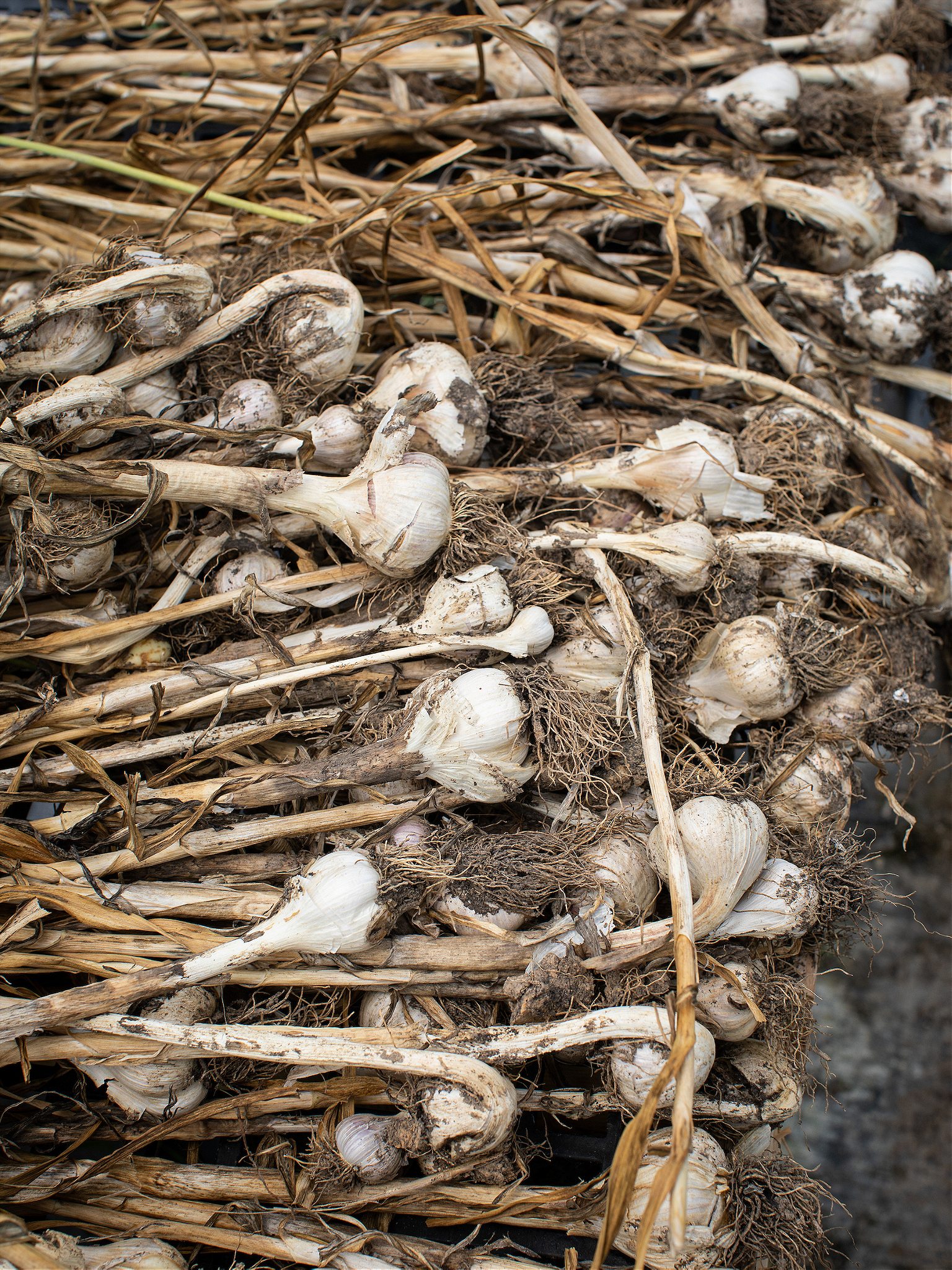
As Gunders puts it, ReFED is by design very “manual” on the solutions side. “We’re just reaching out as we hear about cool things that people are doing or cool companies or cool nonprofits that are doing something in this space,” she says. “Then we extrapolate from there: if scaled up, this could actually save, for example, 40 tons of food across the country and here’s how much it would cost to do it, and here’s how many greenhouse gases would be saved… it’s all a model we’re estimating, but we’re trying to paint some kind of picture to help people prioritize what they can do.”
Individual choice is also a confounding factor. Gunders says her favorite stat comes from a survey that found that 75% of Americans waste less food than the average American. That is, people always underestimate how much food they themselves waste. What they don’t realize is that small choices, such as putting out an overabundance of food at a house party, may make them feel good, may even be key to their self-identity as good hosts, but should be viewed also in light of food waste. Your individual desire to not leave any guest potentially hungry is closely related to desire that shoppers have to see supermarket shelves always full, even if that means guaranteed food waste or the resulting higher prices. Expectations and behavior alike need to readjusting, starting with each consumer.
Leib says that’s why the scaling up of all these smaller solutions is so key. “We’ve already seen a lot of preliminary successes coming from ReFED’s work,” she says. “But into the future, the change needs to be exponential.” In a world where food waste is responsible for 8-10% of global greenhouse gas emissions, she says, solutions both big and small need to be expanded as rapidly as possible.
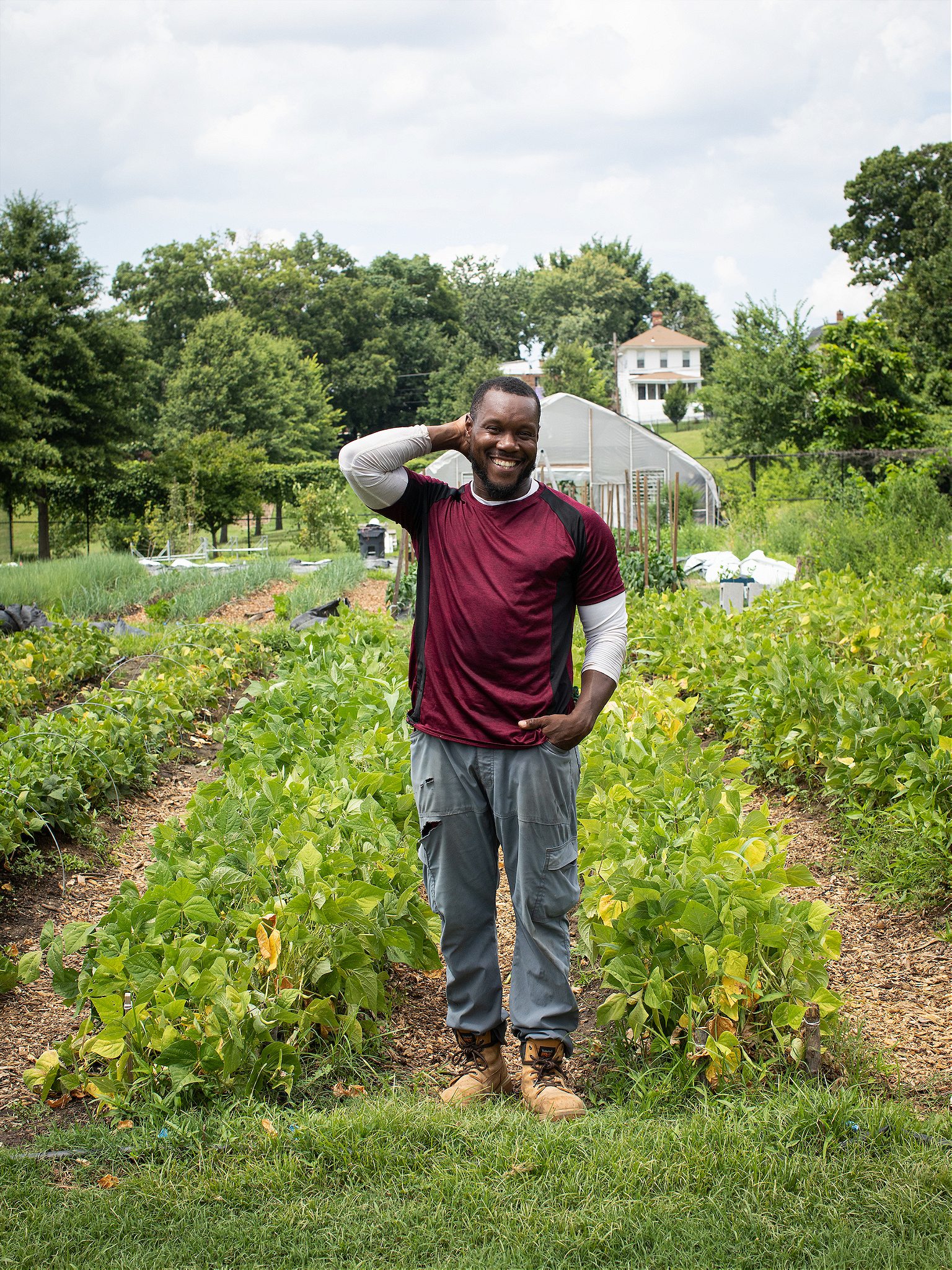
When the pandemic took root in the U.S. in early 2020, it exposed the vulnerabilities of the American food system—from indefinitely delayed supply chains to forced closures of business that serve or store food, which led to massive losses. ReFED saw an opportunity to create a rapid response fund to get money flowing to organizations already engaged with those communities most affected, ultimately delivering more than $3.5 million to 37 for-profit and nonprofit organizations. The effort helped to collectively keep more than 50 million pounds from being wasted during a critical period of the pandemic. In Washington, D.C, one such organization is Dreaming Out Loud (DOL), which was able to make 70,000 meals and deliver groceries to 1,300 recipients each week through November 2020 thanks to fund resources provided by ReFED.
When Taylor Lewis began at DOL in February of this year, he was tasked with managing the Farm at Kelly Miller, a two-acre urban space atop a grassy hill, tucked behind a middle school in Washington D.C.’s Ward 7. His first mandate: to assess the site’s operations and workflows as the farm had become a beacon of community engagement since his employer launched it in 2018. Amid cordoned off row crops, in-progress digging, irrigation installation, a slew of raised beds, and a compost area, the farm produces fruits, veggies, and herbs to stock DOL’s aggregated farm-share, wholesale markets, and “U-Picks,” where community members of all ages harvest their own goods.
The Kelly Miller property would be Lewis’s first urban farming experience after five years tilling soil, two of them in a rural village in Ghana living with expat friends following a turn in the U.S. Navy. Suddenly Lewis found himself forced to live off the land in ways he hadn’t previously thought about. “For the first time I experienced what it meant to truly reap what you sow,” he said, seated underneath a shady tent one July morning. “You put a single seed in the ground, and it produces pounds of food. I felt fulfilled. I got into a more organic or natural rhythm of doing things and I realized this was something I might be doing for the rest of my life.”
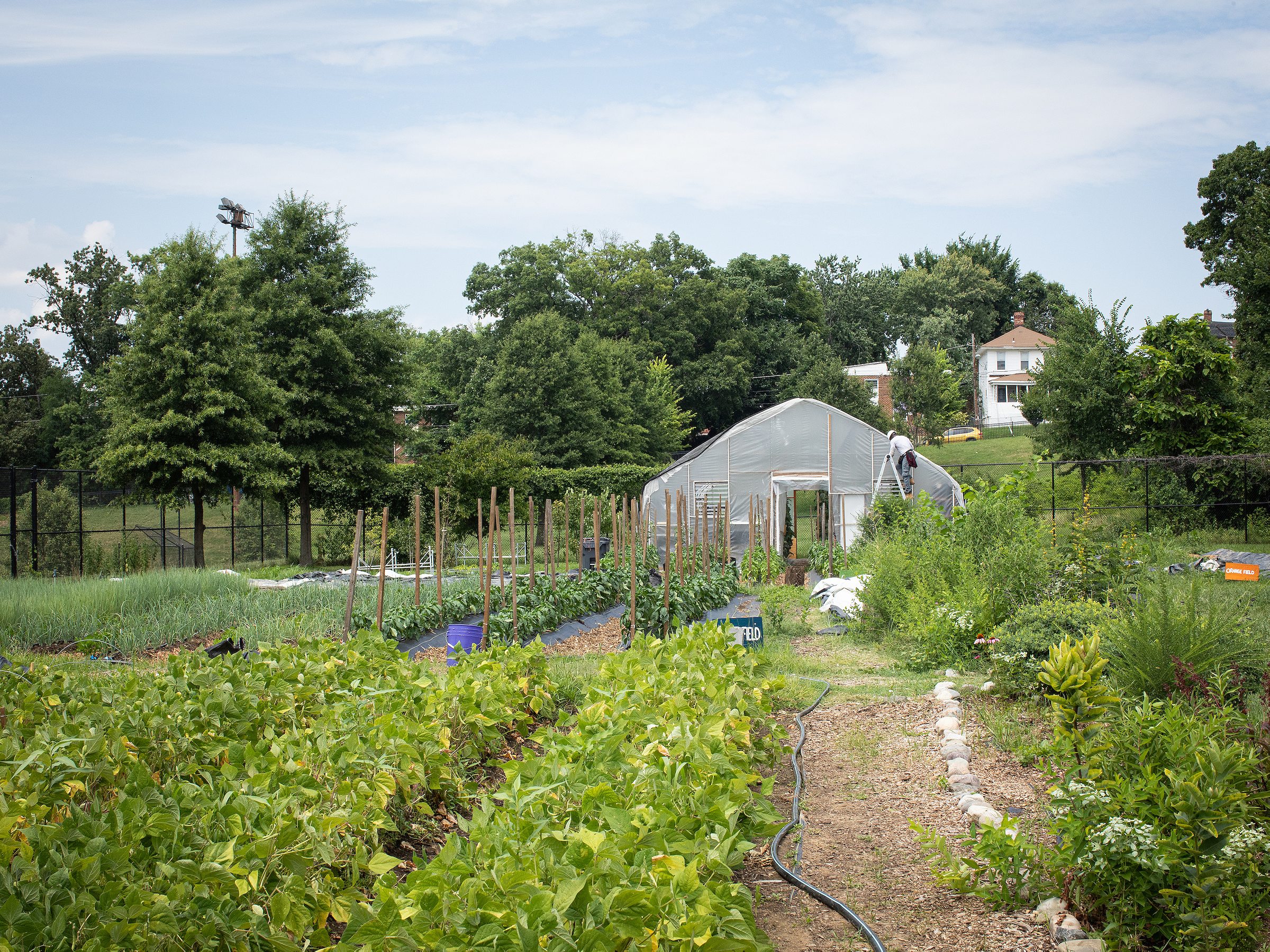
DOL builds community-driven food systems through not only cooperatively supplying healthy foods targeted toward those who are most likely to be exposed to systemic harm, but by creating economically viable opportunities within the food system for those same residents. When Christopher Bradshaw founded the organization in 2008, it was with a clear eye on how food has been politicized in the D.C. Metro area, which is to say, the United States.
To understand the mechanisms of how food as a business operates in the U.S. is to understand that this country has never embraced the responsibility of feeding its people—all of its people. From forcibly removing indigenous peoples off of ancestral land in their care, and owing to an agricultural legacy born out of slavery, food was not intended to ensure a country’s inhabitants receive nourishment or delight in pleasure. Rather, food became incentive to expand territories and acted as fuel to extract maximum results from a disposable labor pool robbed of their identities. The social caste hierarchy rooted in the eras of western expansion and enslavement are apparent in the weaponizing of food that brings us through the 21st century: the eradication of indigenous methods of tending to the land as the government pushed Native people to reservations; sharecropping where Black Americans were trapped in cycles of debt and access to food was restricted often to counter efforts to vote; the abuse of migrant farm laborers, many hailing from Central and South America, and the growing doom of food apartheid, the accurate term for what is often misnamed “food deserts,” where folks who are systemically blocked from living in certain areas find themselves miles away from grocers with healthy, appealing options.
DOL assessed the results of this brutal history and envisioned a path toward food security, including teaching urban agriculture skills to residents made vulnerable by these systemic issues. For that to happen, they would need to shepherd farmers, makers, and sellers into an integrated and transparent process that maximizes their effort and limits unnecessary losses. One way to do this is to aggregate produce from smaller farmers in the region to sell wholesale, distribute through the CSA, and retail at their markets. Or pre-purchasing from such farmers, which provides sustainability, lowers the farmer’s operating costs, and prevents them having to add labor to the retail side of their business. Without DOL, most of those farmers would not be able to produce enough food to make the investment worthwhile, or they would get stymied by
frustrations like not having the cash to purchase cold storage to reserve and transport harvest waiting to be sold. Such was the case with a farmer in North Carolina whose story a DOL staffer related, who was harvesting his crops all day, leaving them to sit outside overnight, then driving 90 miles to market. Inevitably his routine was unsustainable, both due to the physical strain but also the loss of quality in his hard-earned harvest.
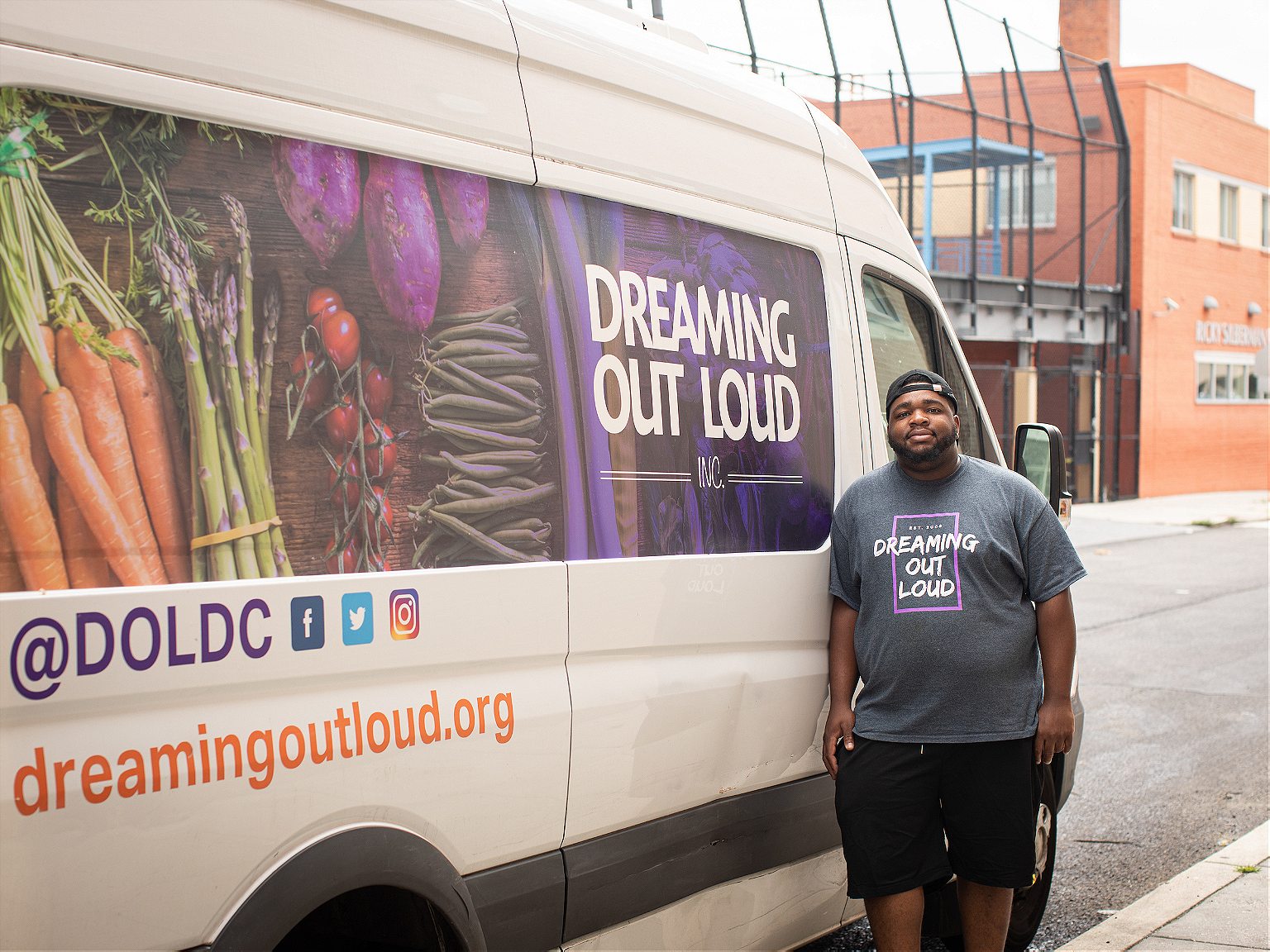
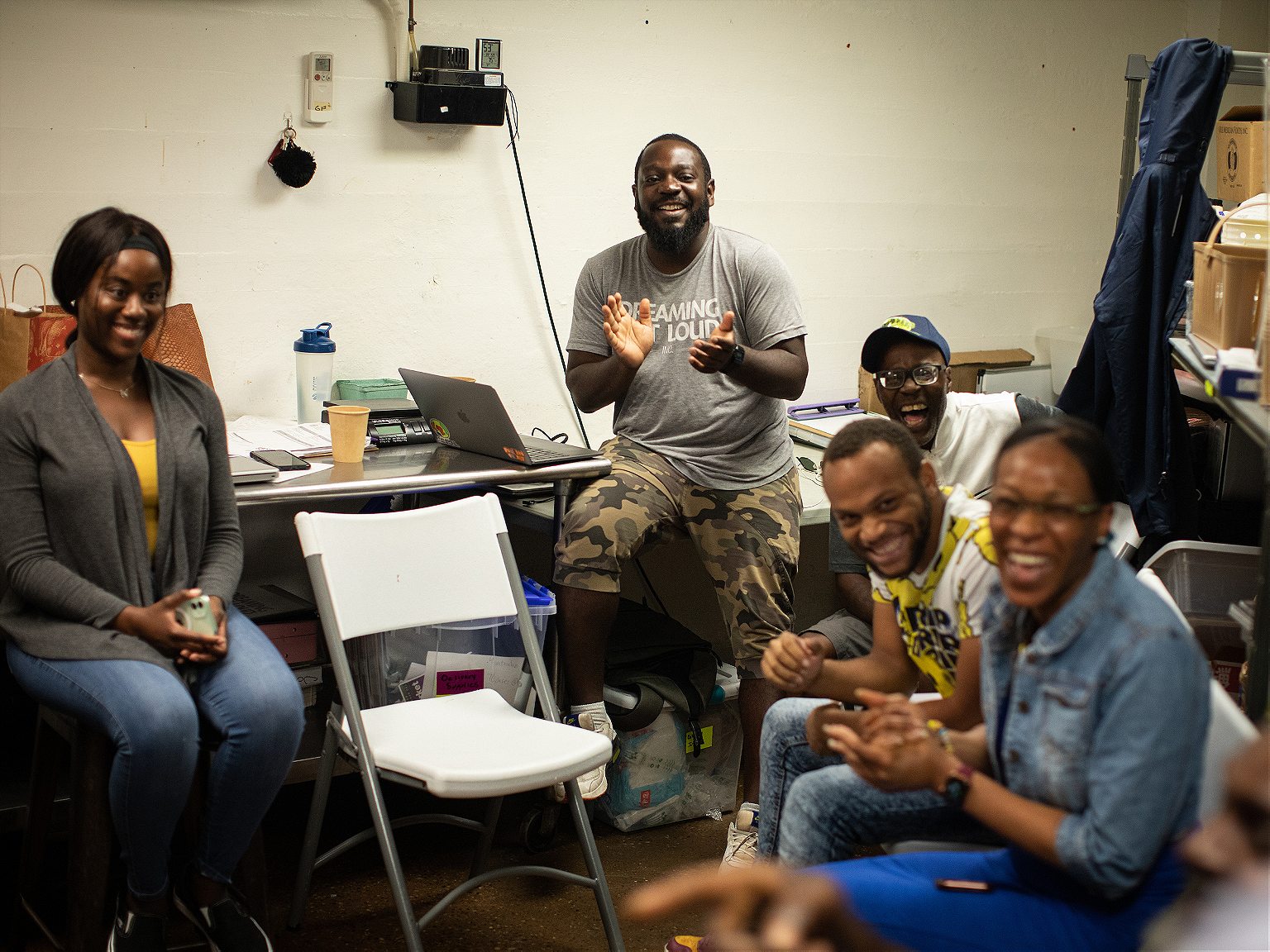
DOL’s approach is to operate as a food hub that actually has skin in the game and knows the community they’re supporting. For example, they know that many of the heads of household who shop at the market at Kelly Miller are seniors, so they established a convenient drive-thru option. And recognizing that folks who pay with government assistance still want the sovereignty of picking and choosing which carrots or bell peppers go in their box ensures that all DOL staffers and volunteers are trained to know their produce and treat all customers with dignity and respect.
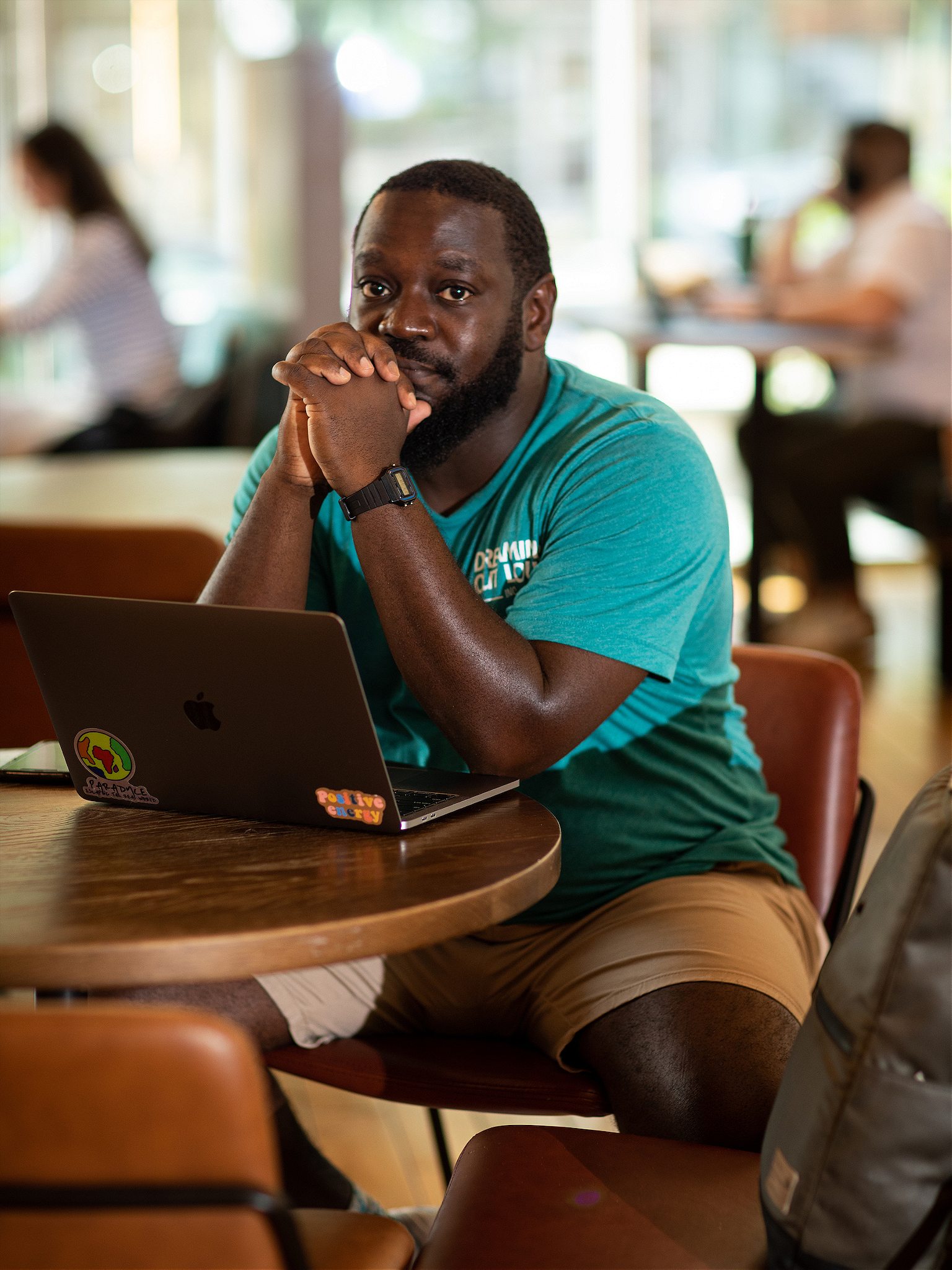
It’s these types of efforts, from the herculean physical feats of moving thousands of pounds of food, to the mundane of setting up processes that flow smoothly, that reduce the risk of food waste across every farmer, company, organization, and household that touches DOL’s system. This is the kind of impact ReFED aims to have anywhere people have access to their solutions.
Food sovereignty, food security, environmental protection, racial justice, better health outcomes: so many things could be improved by what ReFED is trying to achieve.
Harvard’s Leib offers a blunter rationale for supporting ReFED’s mission against food waste. “It’s just a stupid problem,” she says. “Nobody is benefitting from this.”
